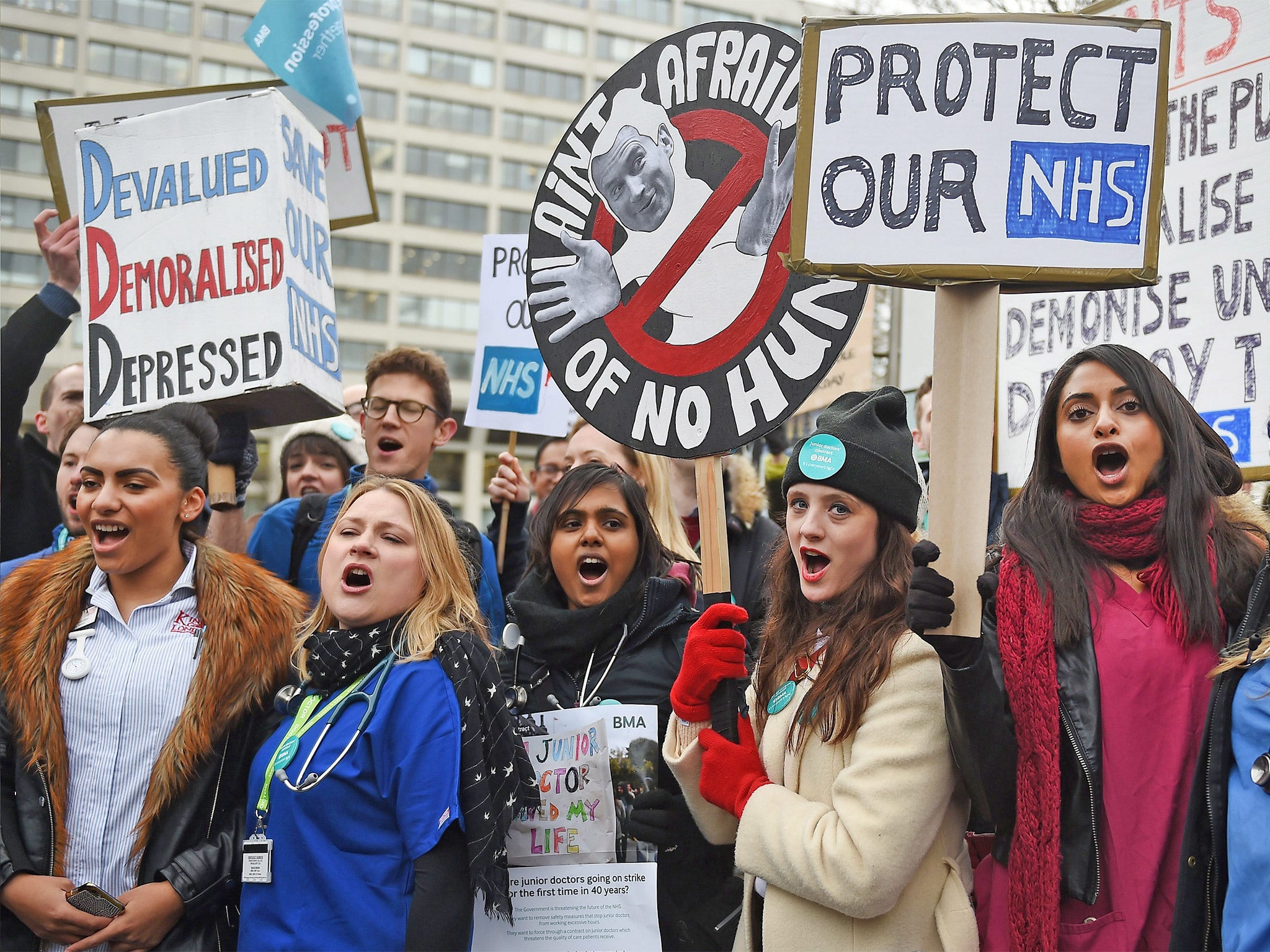The Government treats junior doctors like they are numbers on a spreadsheet – not people
Calling our professionalism into question was the final straw, says the BMA's lead negotiator

Your support helps us to tell the story
From reproductive rights to climate change to Big Tech, The Independent is on the ground when the story is developing. Whether it's investigating the financials of Elon Musk's pro-Trump PAC or producing our latest documentary, 'The A Word', which shines a light on the American women fighting for reproductive rights, we know how important it is to parse out the facts from the messaging.
At such a critical moment in US history, we need reporters on the ground. Your donation allows us to keep sending journalists to speak to both sides of the story.
The Independent is trusted by Americans across the entire political spectrum. And unlike many other quality news outlets, we choose not to lock Americans out of our reporting and analysis with paywalls. We believe quality journalism should be available to everyone, paid for by those who can afford it.
Your support makes all the difference.The dispute over the junior doctor contract has highlighted the consequences of one widely known fact that somehow doesn’t seem to be fully accepted. Healthcare costs money.
The amount we spend on healthcare relative to the outcomes achieved makes the NHS one of the most efficient healthcare models in the world. The heart of that efficiency has been the frontline staff, junior doctors being one incredibly important component.
At £3.3bn, the budget for junior doctors’ salaries is a small fraction of the overall NHS budget. Because of the mismanagement of this workforce and the lack of care taken of them, the current conflict between the government and the workforce could and should have been predicted.
For many years junior doctors have been highlighting the issue of gaps in rotas. This concept of “missing doctors” has been ignored by a management structure in the NHS that frankly cares very little about the welfare of the staff, focusing instead on the delivery of political imperatives.
When the government and its advisers decided to embark on reform of contracts they applied simple principles, such as the demand for cost neutrality. However, they took no account of the already efficient nature of this particular segment of the workforce, delivering services that were already understaffed.
When in 2015 politicians once again started making highly charged and highly inappropriate political statements about seven-day services, they introduced a concept into a negotiation that was already faltering because of the inability to stretch an already under-resourced segment of staff to fit into a service model that was even more undeliverable.
What the politicians failed to appreciate, mainly because it seems that those running the NHS don’t understand it themselves, is that the cost allocated to doctors’ time within a contract has significant consequences. With a single contract covering 56 medical specialties uniformly, if you devalue or overvalue any aspect of doctors’ time there can be an impact on workforce flows. When you have frontline services at breaking point, changes to the value of medical time that drive the workforce out of acute care services can have catastrophic consequences for the deliverability of services.
The poisonous political atmosphere that has been created by calling into question the very professionalism of the doctors who have kept the system just about on the rails for the past five years was the final straw. When morale was already very low, when management seemed be so out of touch with frontline issues, when the lack of any pastoral care of staff had become the norm in most doctors’ working lives, to call into question their professionalism was incomprehensibly crass.
Over the course of the past six months the way politicians have handled the whole issue has shown a complete lack of understanding of that very professionalism. When doctors try to solve the obvious workforce problem facing them by highlighting the effects of valuing doctors’ time, they are accused of demanding pay rises or of being fixated on money.
What was already an incendiary set of circumstances was pushed even further. The government managed to unite the profession in focusing on terms and conditions, something the profession has not achieved in generations. It then simply failed to understand that the service was overstretched and unable to cover the current service safely.
Without any additional resources to indicate that more could be deliverable, this demonstrated how out of touch the government and its advisers had become. When so many doctors can see the problem and agree on the solution, you have to wonder what advice the government is listening to and whether that advice has fatally undermined the NHS, risking untold damage for generations to come.
Johann Malawana is chair of the Junior Doctors Committee and was the BMA’s lead negotiator on the contract. As a junior doctor he will be subject to imposition of the contract.
Join our commenting forum
Join thought-provoking conversations, follow other Independent readers and see their replies
Comments